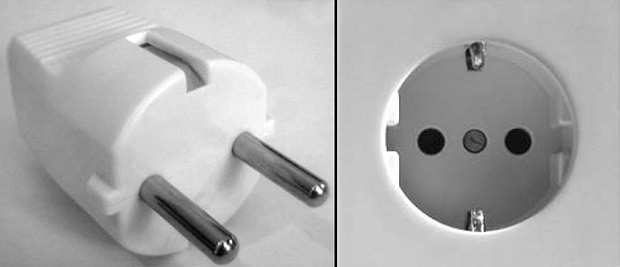
Packing
Dress Code
“Business casual/formal” is sufficient for most of the work of the General Council. However, for the visits to Berlin and Wittenberg, participants are requested to dress more formally. This means either traditional suits, ties etc. or (even better) traditional clothing. Especially for Berlin we would like to show the television audience how colourful and diverse the Reformed family is.
Please also consider bringing clothing to participate in the “Thursday in Black” campaign against all forms of sexual and gender based violence.
Layering appropriately for cooler morning and evening hours is recommended. Air conditioning is not typical in Germany, thus please dress accordingly (see climate section below).
Climate and Weather
The average highs in Leipzig for June and July are, respectively, 21.7C (71.1F) and 24.5C (76.1F), while the average lows are 11.5C (52.7F) and 13.8C (56.8F) and the daily means are 16.5C (61.7F) and 19C (66.2F). The record high for these two months was 36.6C (97.9F) while the record low was 1.8C (35.2F). Mornings and evenings are cooler, and the plenary hall and other Council facilities at the Messe are air-conditioned (though many locations in Germany are not).
Rainfall is very possible in June and July. Please think about bringing rainproof jackets and footwear. Umbrellas will be provided to all participants in your welcome packets!
Electricity
Electrical sockets (outlets) in Germany supply electricity at between 220 and 240 volts AC. The primary socket type is known as the Europlug or Schuko (see image below). If you’re plugging in an appliance that was built for 220-240 volt electrical input, or an appliance that is compatible with multiple voltages, then an adapter is all you need.

Travel plug adapters do not change the voltage, so the electricity coming through the adapter will still be the same 220-240 volts the socket is supplying. For example, North American sockets supply electricity at between 110 and 120 volts, far lower than in most of the rest of the world.
But that doesn’t mean that your specific appliance isn’t already compatible with the higher voltage—it may very well be. Most portable electronic devices, especially those that run off batteries, are built to be compatible with all worldwide voltages. This usually includes items like laptops, cell phones, digital cameras, digital camcorders, many portable video game devices, digital music players, etc. More and more personal grooming items like hair dryers curling irons, shavers (especially cordless ones) and such are being built to be compatible with multiple voltages as well—but most of them are not.
Please check to ensure that your device(s) is compatible with 220-240 volts before bringing it along. If it is not, plugging it in could “fry” the device or even start a fire.
Phones/Communications
The Messe has Wi-Fi access for all participants while many of the hotels will also have Wi-Fi access included in their cost. Wi-Fi “hotspots” are common in Germany, including throughout Leipzig’s city centre.
Money/credit cards/cash points
Euros are used in Germany. Cash is the preferred method of payment. Debit and credit cards—such as Visa, Mastercard and sometimes American Express—are accepted at some restaurants and shops. Smaller stores do not usually accept credit cards or debit cards.
The use of checks or travelers checks in Germany is extremely uncommon.
Many banks that offer cash machines (ATMs) where international cards can be used to withdraw cash are located in Leipzig city centre. There are also several such machines in and around the Messe conference grounds. Please note that accessing cash through these machines will likely incur additional fees.
For payment of registration and other fees at the Council, the Finance Office will be able to accept major credit cards, debit cards and cash in the following denominations: euros, US dollars and British pounds. Euros are preferred due to fluctuations in currency rates.
Time Zone
The time zone in Leipizig is Central European Summer Time (CEST; UTC/GMT +2 hours).
Vaccinations
Vaccinations are not necessary for trips to Germany.
 World Communion of Reformed Churches
World Communion of Reformed Churches